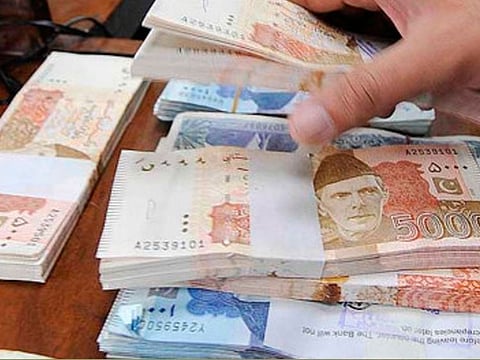Pakistan rupee could slide to 200 a dollar by year-end
It has already breached the 150 level after dropping 5% this month

Karachi: Pakistan’s rupee is vying for the title of the world’s biggest loser this month, the victim of an apparent devaluation with more pain ahead.
The managed-float currency dropped more than 5 per cent in May and breached 150 per dollar, after the government agreed to another bailout by the International Monetary Fund that recommended a market-determined exchange rate. The central bank had devalued the currency five times last year.
“This knee-jerk reaction of the market will continue,” said Kaiser Bengali, an economist who has helped previous governments in multiple roles including as the designer and first head of the cash-based social support programme in 2008. “Given our large deficit and high debt ratio, the rupee will continue to decline. The rupee will be 200 a dollar by year-end.”
Pakistan’s economy is going through a familiar boom-and-bust cycle; debt is soaring, inflation is rocketing, and reserves are falling after a deficit blowout. The IMF has long advocated Pakistan to loosen its grip on the rupee, and estimated the real exchange rate was overvalued by as much as 20 per cent in 2017.
The central bank did not immediately respond to a request for a comment on the rupee’s performance. Earlier this month, it said the rupee level reflects demand and supply conditions in the foreign exchange market, and that it will help in correcting market imbalances.
Record low
The rupee closed at 148.2 per dollar on Thursday, according to the central bank. It touched a record-low 152.525 last week, according to data compiled by Bloomberg, and is among the worst performers globally in May together with currencies from Zambia and Haiti. The rupee has now erased almost a third of its value in the past 12 months.
The central bank still intervenes, but the currency is now more determined by market forces, according to three foreign-exchange dealers.


